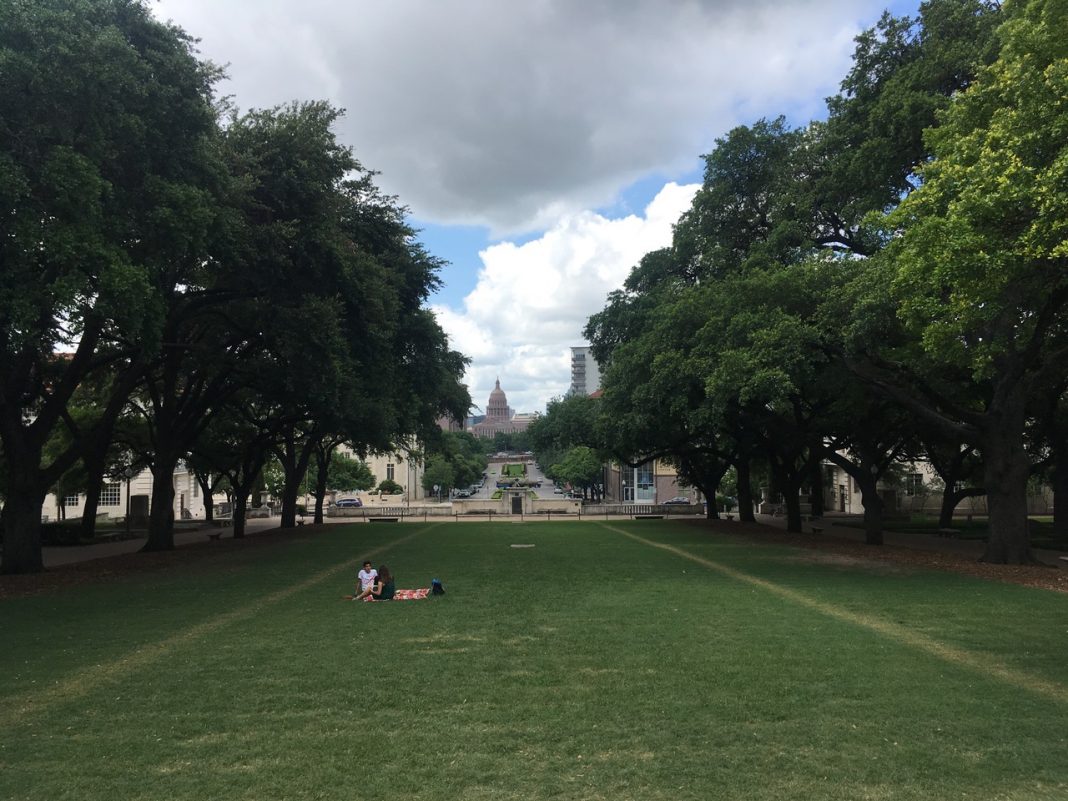Find out why this Portuguese researcher says she didn’t “have to think twice before applying” for the Advanced Computing Training Program, offered by the UT Austin Portugal Program.
A post-doctoral scholar at the Institute of Electronics and Informatics Engineering of Aveiro (IEETA) at the Department of Electronics, Telecommunications and Informatics (DETI) of the University of Aveiro, Alina Trifan’s research focuses on applying machine learning and artificial intelligence algorithms to generate health insights from social media data. With a Ph.D. in Informatics on Computer Vision for Robotic Applications, Alina joined the Bioinformatics group at IEETA in 2017. “An important part of my work is related to applying methodologies and current practices for enhancing the interoperability and reproducibility of my research”, she stated.
This summer, she spent three months at Austin, in the Texas Advanced Computing Center (TACC), within the Health Analytics Group. Upon her return to Portugal, we talked to Alina about how this experience influenced her life and her current research work.
-What motivated you to apply for the Advanced Computing Training Program?
I applied for the Advanced Computing Training Program mainly for two reasons. On the one hand, I was looking for an international experience that would allow me to be involved in a different research environment and grow as a scientist. The possibility of getting to know a supercomputing center and learning the insights of the research projects that this supercomputing infrastructure enables was extremely exciting and I did not have to think twice before applying for the program. On the other hand, on a personal note, I had no doubt that this sort of experience could only make me grow as it would grant me the chance to adventure myself into a different culture.
– Tell us more about the research work you conducted while at TACC and the research team you worked with.
Prior to embarking on this journey, I chose my mentoring team within the Health Analytics Group, a multidisciplinary team of researchers from TACC and Dell Medical School. Their current ongoing work aims at creating a digital phenotype for pregnant women by using a mobile application. The study that I have conducted during my participation in the program aimed at extending this definition of digital phenotyping by including social media postings. In a nutshell, my work investigated the feasibility of a postpartum prediction algorithm based on social media postings of recent mothers.
– In what way was the participation in this training program important for your current research? And how do you think it will impact your work moving forward?
First and foremost, the project in which I worked during summer at TACC/Dell Medical School is strongly related to my research interests and to the work that I have been developing over the last year. Through this participation, I understood that my research interests are current and shared in a different corner of the world. It gave me not only the confidence to continue working in this area, but it also different views on the matter. Another important aspect that I take away from my participation is the internal functioning of the research groups at TACC – their smooth internal organization and the relaxed overall environment.
– How would you describe the experience of living and working at Austin?
Workwise, I was impressed not only by the knowledge and the organizational skills that I got to discover at TACC, but also by their humbleness and willingness to lend a hand. As a young researcher, it was reassuring to understand that no single person holds all the answers to a problem and that sharing your research ideas with people outside your research group can lead to new discoveries. From a personal point of view, I especially enjoyed all the green spaces that are accessible within the Austin area. The free public transportation with the UT card came in very handy. Exploring Austin during the summer turned out to be a little bit challenging due to the high temperatures, but where there’s a will, there’s a way!
– What would you say to future participants of the Advanced Computing Training Program? Any advice(s)?
Be prepared for the unknown and for lots of smiles! I found the North-American culture to be very different from any other European one that I know and I took pleasure in discovering its characteristics. Everyone greets you with a smile and strangers will ask about your day on a regular basis, with no harm intended. People are warm, friendly and curious about what brings you to Austin. On a downside note, prepare yourself for seeing very little pedestrians and quite a lot of traffic. If you happen to take the program in the summer, a thermos bottle will be your best friend.
– What are your expectations for the future?
I expect to put into practice some of the knowledge that I acquired during the three summer months I spent at TACC. This will help me organize my work better and make use of current open source tools in order to make my research more interoperable and reusable. Moreover, I hope I can maintain a work relationship with the group that I was part of and continue the preliminary study that I worked on during the summer.

